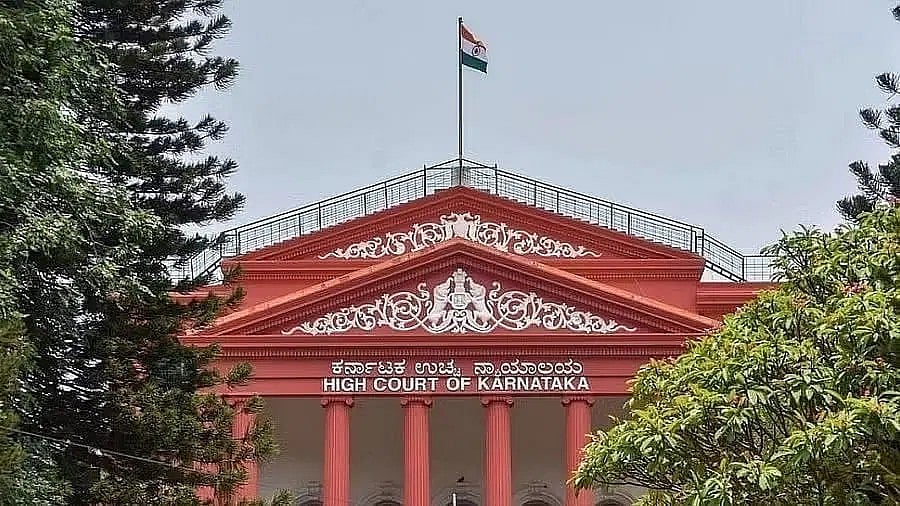
Karnataka High Court.
Credit: DH File Photo
Bengaluru: The High Court of Karnataka has imposed a cost of Rs 2 lakh on the chairman and members of the District Caste and Income Verification Committee, Hassan district, for driving a woman to an unnecessary litigation and a consequential loss of 12 months of her employment.
“Imposition of exemplary cost has become necessary in the peculiar facts of the case, not only to recompense the petitioner, but become a cautionary call to all those who hold public office, that dereliction cloaked in ignorance shall find no refuge before this Court,” Justice M Nagaprasanna stated in his order.
B N Muthulaxmi, a resident of Channarayapatna, was selected as the Assistant Public Prosecutor under the Category 3A in terms of the select list dated January 17, 2023. However, she moved the high court after the committee refused to issue a certificate validating the caste and income certificate, already issued.
After Muthulaxmi submitted all copies of documents uploaded to the Taluk Caste and Income Verification Committee, an inspection was conducted. It was reported that since her husband was working as a lecturer at a private college, the caste and income certificate should be based upon the husband.
The petitioner brought attention to the judgments of the Supreme Court and the high court, contending that it is a settled principle of law that only the father’s income should be taken note of while issuing the certificate.
During the pendency of her petition before the high court, the authorities issued the certificate. The authority had stated that the validity certificate was issued only for the reason that the court had directed to.
“..the observation undoubtedly amounts to admitting ignorance of law, as settled by the apex court and this court, and an act of contumacious contempt for having observed so that they are issuing the validity certificate only because this court has directed. This court’s direction was to act in tune with law,” Justice Nagaprasanna said.
The court also observed that justice was delayed because of the state’s willful ignorance or negligent defiance.
“For 12 long months, while others from the same select list stepped into service, the petitioner languished in anxious limbo. Her legitimate aspirations were swept under the weight of official indifference. This court, thus, cannot permit the curtain to fall on this matter with a mere note of closure. The law was clear, the precedent was binding, yet the officers, with impunity, chose to act in contravention. The members of the committee who authored the document of miscarriage of justice must bear the burden for their folly,” the court said.
The court has also directed the cost to be paid to the petitioner within four weeks, not to be paid by the state, but by the members of the committee from their pockets.